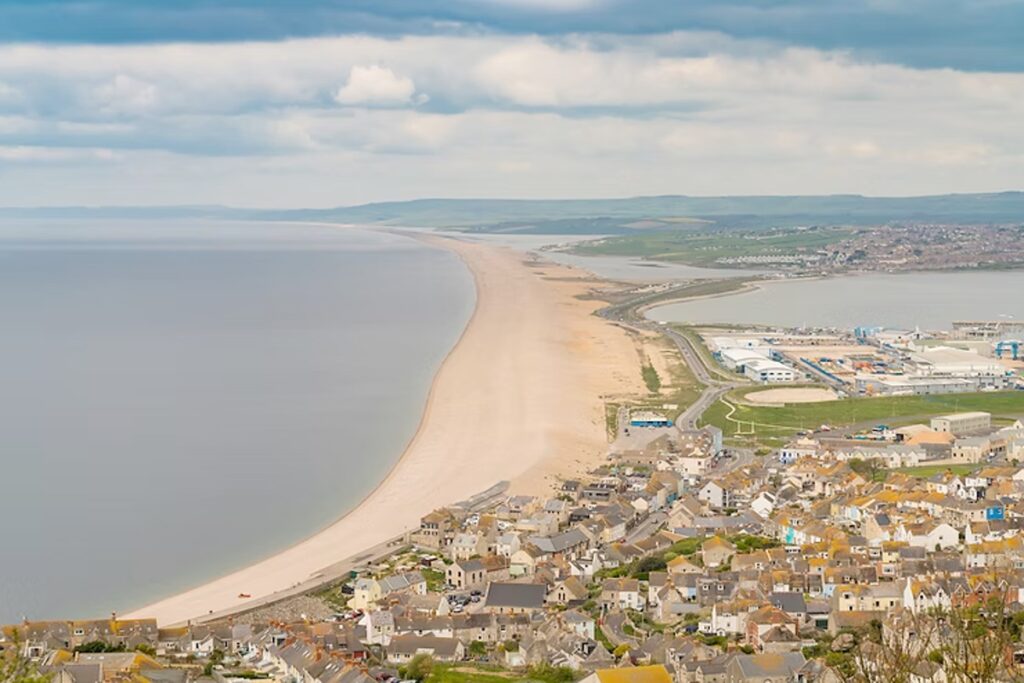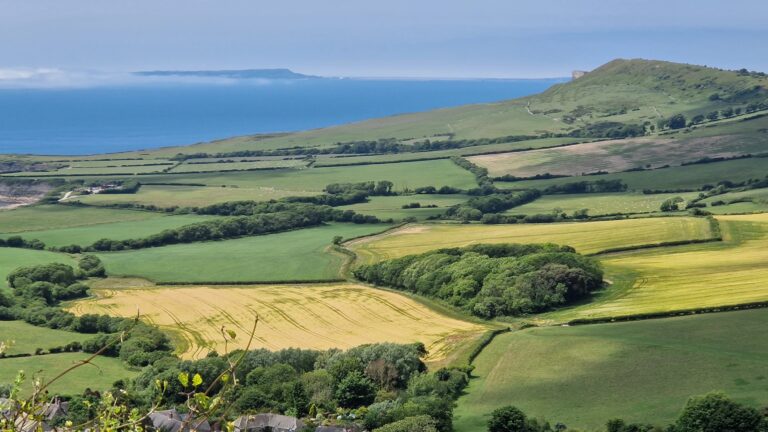In the 70 years since the National Parks and Access to the Countryside Act of 1949, a high proportion of England’s most outstanding landscapes and important natural habitats have become “Designated Landscapes.” But more remains to be done, including securing a National Park for Dorset & East Devon.
The government-appointed Glover Review, as part of its wide-ranging review of Designated Landscapes, is considering whether to recommend possible new designations. The Review Panel is interested in which landscape types are not currently served by designation, and in issues of accessibility especially for those in significant conurbations and in areas of relative deprivation. The following is supplementary evidence for the Glover panel.
Landscape Diversity.
Coastline is currently under-represented in our National Parks with only some 90 miles of coastline in England’s existing National Parks (NPs). The Dorset & East Devon World Heritage “Jurassic” Coast [Britain’s only natural World Heritage Site] would double the extent of coast in England’s NPs, and offer a coastline of outstanding quality, diversity and recreational interest. The seaside offers an inclusive destination for everyone and provides a stepping stone into the wider natural environment. Dorset’s geodiversity and therefore great landscape diversity and unparalleled biodiversity richness [4 of the UK’s top 5 areas of greatest biodiversity are in Dorset] are important strengths and such diversity is vital for effective conservation and climate change resilience.
Accessibility.
Mapping distances, railways and bus routes may be used to suggest which communities don’t currently have ready access to designated landscapes. Such mapping might suggest that Dorset’s towns and coast are some way from London and the Midlands. In reality, however, as our evidence to the Glover Review says, Dorset has good and inclusive direct access by public transport for visitors from London, the Midlands, Bristol and further afield. Indeed, Dorset seaside towns (including Weymouth) have a strong tradition as a welcoming holiday destination. Many and diverse groups undertaking the Duke of Edinburgh awards and other challenges find the area accessible, safe and inclusive with a growing range of accommodation available. The area’s attractions are closer, in ease of travel and inclusivity, to the communities of London, the Midlands, Bristol and the north than a cursory look at a map might suggest.
Accessibility: Dorset’s conurbation.
The Bournemouth/Poole/Christchurch [BCP] conurbation becomes a single unitary authority from April 2019. This is the UK’s largest non-industrial conurbation and, with a population of around 384,000, is bigger than Bradford or Coventry, for example. Having easy access to a neighbouring Dorset National Park would offer environmental, health and recreational, and economic opportunities to the BCP conurbation. It would be an attractor for those seeking staff who value the outdoors, the quality of life and the wide range of recreational opportunities available, as illustrated in the database compiled as part of the evidence from Portland – see https://www.dorsetnationalpark.com/evidence-2018
Relative Deprivation.
This is a feature of rural as well as urban areas. Even in the attractive heritage communities of Weymouth and Portland, on Dorset’s Jurassic Coast, there are areas of high relative deprivation with some of the lowest levels of income in England. The BCP conurbation also has areas of high relative deprivation. Moreover, parts of Dorset have among the highest differentials between house prices and earnings in England, and a real shortage of housing affordable by local people and young families. A Dorset National Park would help strengthen Dorset’s economy and communities and help deliver the genuinely affordable homes that local people need. This is reflected in the recent resolution by Weymouth & Portland Borough Council:
Weymouth & Portland Borough Council Resolution, January 2019
This Council recognises the benefits a National Park could offer Dorset and encourages the Glover Review to support the proposal and ask Natural England to undertake a full assessment at the earliest opportunity.
- A National Park would work in partnership with the Dorset Council and all local authorities and communities to help ensure the environment, communities and economy are thriving and prosperous. It would bring extra resources, promote truly affordable homes for local people, and support and attract business, jobs and skills.
- Dorset deserves National Park recognition for the area’s nationally and internationally important landscapes, World Heritage Coast, wildlife and heritage.
- Dorset needs a NP to better safeguard and enhance its outstanding environment, wildlife and heritage.
In these difficult times for public sector financing, this is a significant opportunity to secure a National Park for Dorset and bring significant extra public sector funding and the associated economic benefits to Weymouth and Portland’s communities.
Decision
That this council writes to both the Secretary of State for Environment, Food and Rural Affairs and The Glover Review Panel supporting this proposal for a National Park.
The Dorset National Park Team welcomes the support of many national and local organisations and communities for the long overdue National Park for Dorset & East Devon – the outstanding candidate to be England’s next National Park.




